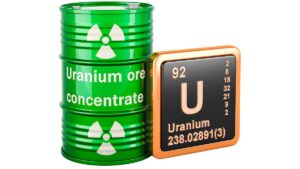Chinese iron ore imports hit record high in 2020

Pic: Schroptschop / E+ via Getty Images
China’s iron ore imports hit a new record in 2020 as coal imports surged in December due to an unusually cold winter.
According to UBS bank analysts, China imported 96.8 million tonnes (Mt) of iron ore in December, taking its total imports in 2020 up to 1,170Mt, a 9 per cent increase over its imports in 2019.
This demand could continue with unofficial surveys indicating that large and medium steel mills processed an average of 2.19Mt per day in December.
Steel export demand is continuing to normalise, growing 36 per cent in December over the previous month to 3.5Mt.
Iron ore port stocks have also slipped over the fourth quarter of 2020 to 124.25Mt at of 11 January 2021.
Little wonder then that iron ore prices climbed nearly $US7 per tonne in a week to $US172.25 per tonne last week.
Expected weather issues, which typically impact iron ore volumes from the major exporters, could also provide additional price support in the current quarter.
Meanwhile, hopes that Brazil’s output would recover have been dealt a blow following a ship loader fire at Vale’s Ponta da Madeira that means that large ships won’t be leaving port on schedule for a while.
UBS noted that it was still unclear what impact this could on export volumes from the South American country.
Coal imports spiking
The bank added that Chinese coal imports surged to a new monthly record of 39.2Mt in December, taking total imports for 2020 up to 304Mt.
Seaborne thermal coal prices have increased due to the colder than expected winter in the northern hemisphere that has also resulted in a broader lift in energy prices particularly for liquefied natural gas.
However, Australian suppliers of coal remained locked out from the Chinese market despite power outages in China thanks to the ongoing dispute between the two countries.
The news is a little brighter for coking coal with the South China Morning Post quoting Navigate Commodities managing director Atilla Widnell as saying that Australian coking coal was hard to replace quality-wise.
“Australian premium hard coking coals do have that X-factor when it comes to high coke strength after reaction, low volatile matter and ash content, which Chinese coke ovens need to blend with relatively inferior local coals,” he noted.
This quality can’t be matched by supplies from Mongolia, the US, Canada and Russia with Widnell warning that Chinese steel production rates could be impacted.
Related Topics
UNLOCK INSIGHTS
Discover the untold stories of emerging ASX stocks.
Daily news and expert analysis, it's free to subscribe.
By proceeding, you confirm you understand that we handle personal information in accordance with our Privacy Policy.








